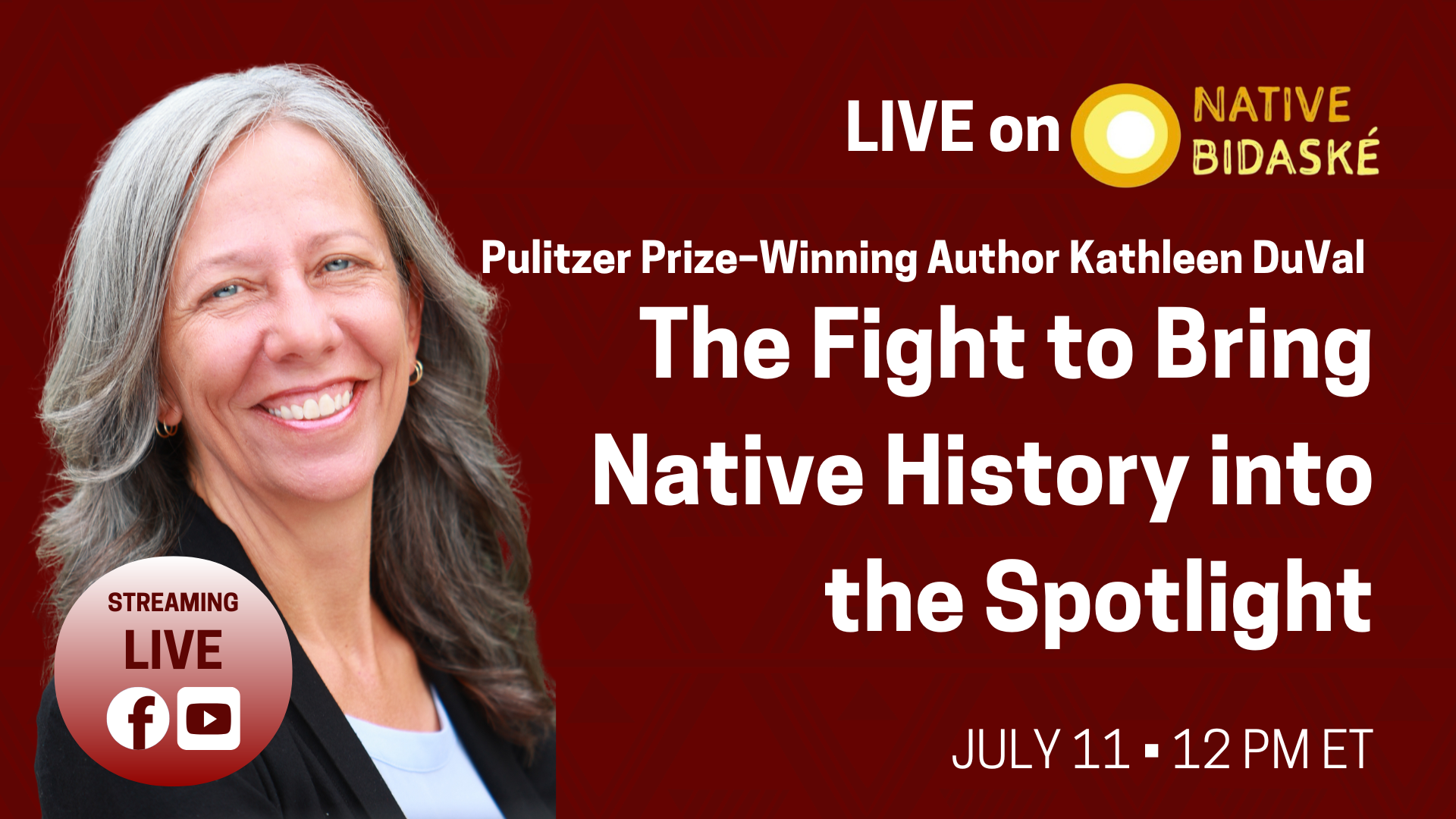
- Details
- By Native StoryLab
Most American history books begin with a familiar story — one centered on colonization, conquest, and the so-called “founding” of a nation. But Kathleen DuVal’s latest work flips that narrative on its head.
Her book, Native Nations: A Millennium in North America, doesn’t start in 1492. It begins centuries earlier and remains focused on the Native nations that built governments, economies, and alliances long before Europeans arrived. The result? A sweeping, Indigenous-centered retelling of American history — and a breakout success that just won the Pulitzer Prize.
DuVal, a professor of history at the University of North Carolina–Chapel Hill, says she didn’t expect Native Nations to become a cultural phenomenon, much less win the Pulitzer, the Bancroft Prize, the Mark Lynton History Prize, and the Cundill History Prize.
DuVal will join Native Bidaské on Friday, July 11, at 12 p.m. ET to talk about her research, the power of Indigenous storytelling, and the ongoing fight to bring Native history into the spotlight.
TUNE IN:
Date: Friday, July 11
Time: 12:00 p.m. ET / 11:00 a.m. CT / 10:00 a.m. MT / 9:00 a.m. PT
Streaming on: Facebook, YouTube, and the Native News Online website
Help us defend tribal sovereignty.
At Native News Online, our mission is rooted in telling the stories that strengthen sovereignty and uplift Indigenous voices — not just at year’s end, but every single day.
Because of your generosity last year, we were able to keep our reporters on the ground in tribal communities, at national gatherings and in the halls of Congress — covering the issues that matter most to Indian Country: sovereignty, culture, education, health and economic opportunity.
That support sustained us through a tough year in 2025. Now, as we look to the year ahead, we need your help right now to ensure warrior journalism remains strong — reporting that defends tribal sovereignty, amplifies Native truth, and holds power accountable.
 The stakes couldn't be higher. Your support keeps Native voices heard, Native stories told and Native sovereignty defended.
The stakes couldn't be higher. Your support keeps Native voices heard, Native stories told and Native sovereignty defended.
Stand with Warrior Journalism today.
Levi Rickert (Potawatomi), Editor & Publisher
